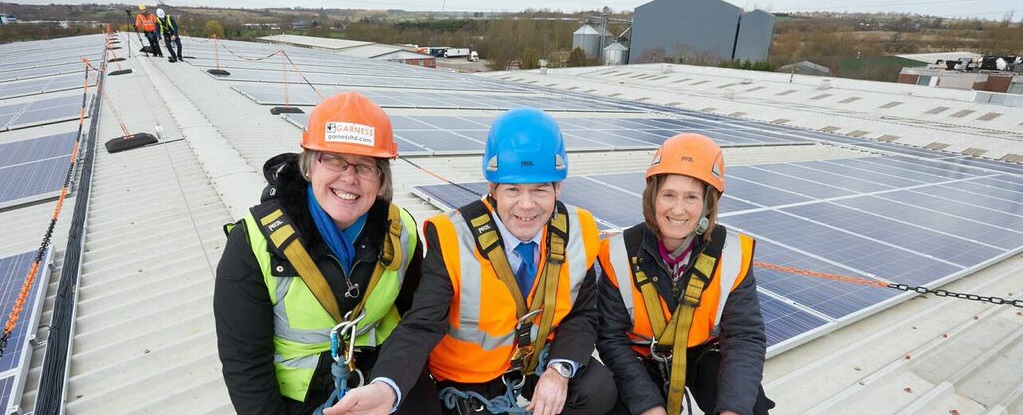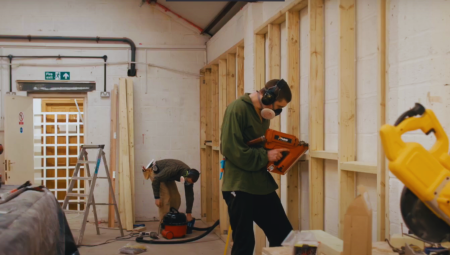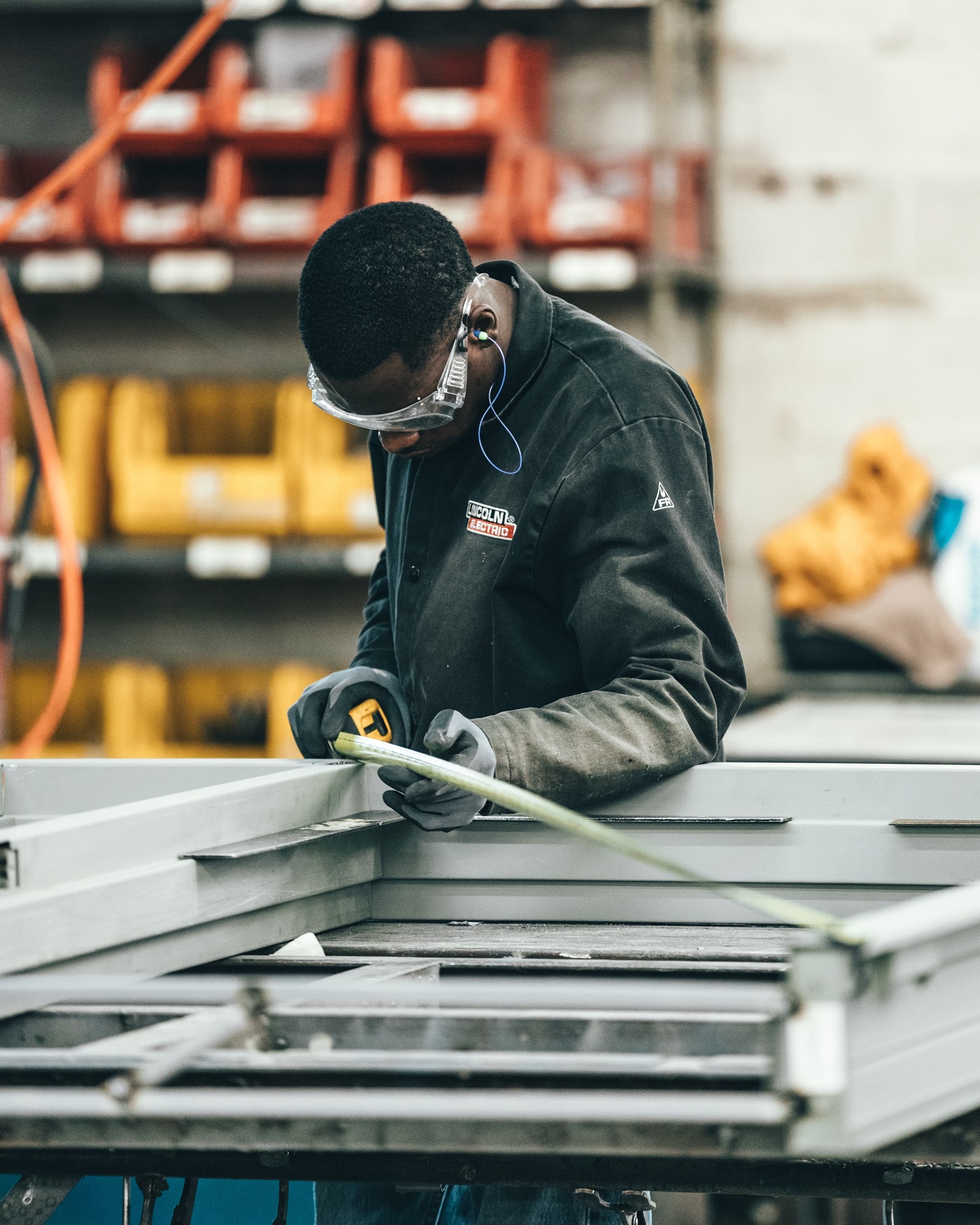
ARTICLE
How to cut energy use in manufacturing
Manufacturing operations consume a substantial amount of energy, resulting in high running costs and environmental impact. Every business or organisation has the potential to improve its energy efficiency, reducing energy consumption and its associated costs while also mitigating environmental harm. However, identifying the most effective measures requires a tailored approach based on the unique characteristics of each business and its premises.
The first step towards addressing energy inefficiency in manufacturing is to get a comprehensive energy efficiency assessment carried out by highly experienced professionals. This assessment will pinpoint areas where energy is being inefficiently used, offering tailored recommendations to optimise energy usage, reduce running costs, and minimise your environmental footprint.
Reducing equipment energy consumption
High-energy-consuming equipment and appliances typically account for a significant portion of energy usage in manufacturing operations. However, it’s often possible to reduce this energy consumption.
One immediate action is to ensure that equipment is switched off when not in use. Even when idle, machinery consumes energy, and in facilities with many pieces of equipment, this idle energy usage can represent a significant amount of wastage. Encouraging employees to be mindful of energy usage through regular communication or visual reminders, such as posters, can help mitigate this issue.
Additionally, it’s beneficial to examine the existing settings and controls of each piece of equipment to facilitate automation. Many machines offer programmable features that allow them to power down after a set period of inactivity. Installing controls where they don’t already exist can further improve energy management. For instance, Variable Speed Drives (VSDs) can be added to motors to gain better control over their speed, resulting in substantial energy savings. Regularly checking the condition of door seals on refrigeration units can also improve equipment efficiency and reduce energy wastage.
Looking beyond existing equipment, manufacturing businesses should consider replacing outdated machinery with more energy-efficient alternatives, particularly focusing on motors and refrigeration units, which are notorious energy consumers. Investing in energy-efficient equipment not only reduces energy costs but also contributes to environmental sustainability.
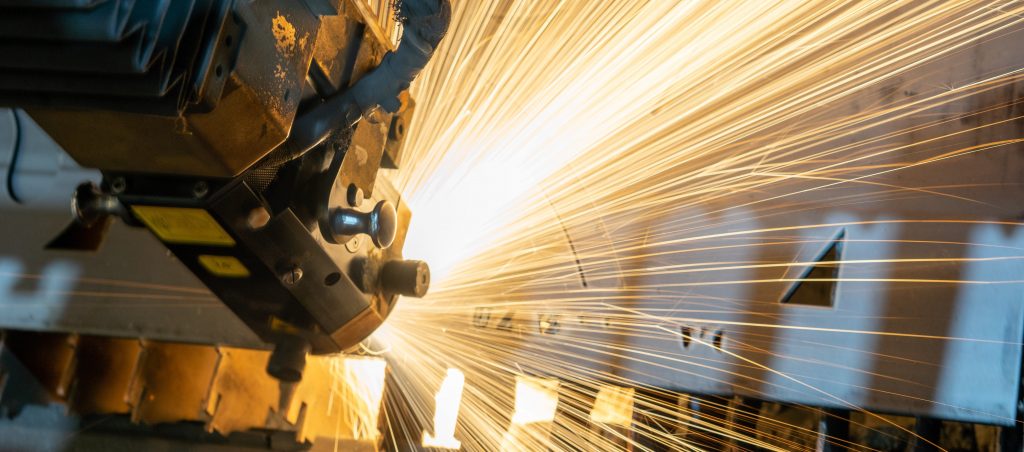
Energy efficient lighting
Ensuring adequate lighting in manufacturing facilities and workshops is essential for maintaining the safety of personnel, particularly in areas lacking natural light sources. However, the need for sufficient lighting often results in the installation of numerous light fixtures, which can contribute to significant energy consumption if left on for extended periods.
The most effective solution is the replacement of traditional light bulbs with highly energy-efficient LED alternatives. LED bulbs consume considerably less energy and have a significantly longer lifespans, making them a cost-effective and sustainable lighting option.
Similarly to managing manufacturing equipment, it’s important to ensure that lighting is switched off when not in use. Implementing automated systems, such as motion sensors, can help achieve this goal by automatically turning off lights in unoccupied areas. This simple yet effective measure not only reduces energy wastage but also promotes a culture of energy-conscious behaviour within the workplace.
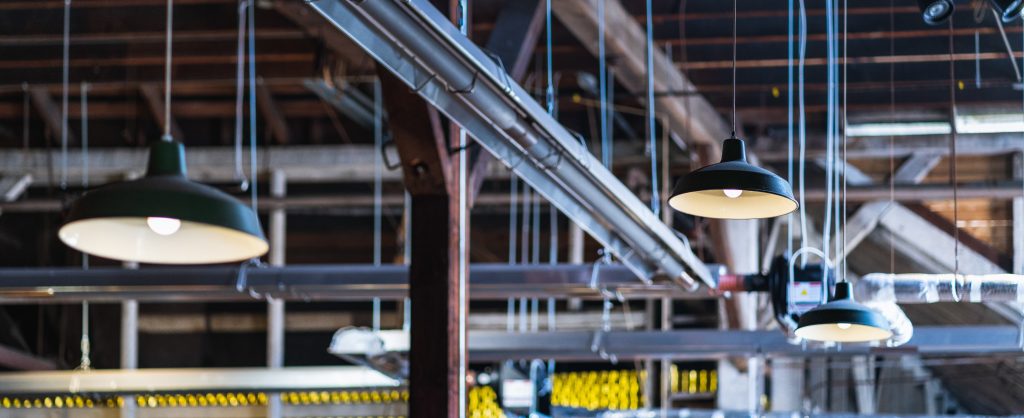
Consider solar panels
Manufacturing businesses often operate in workshop or warehouse-style buildings, which tend can have large roofs which lend themselves to solar PV rooftop panels, such as Thames Travel (photo below) have done..
So, if your business has a spacious, flat, south-facing roof, it would be an ideal spot for installing solar rooftop PV panels. Doing so would let your business to generate cheaper, green electricity.
As a social enterprise, Low Carbon Hub offers the installation of solar PV panels – at no cost to your business, providing cheaper, cleaner energy. Moreover, the profits derived from this initiative go towards supporting community carbon reduction projects.
